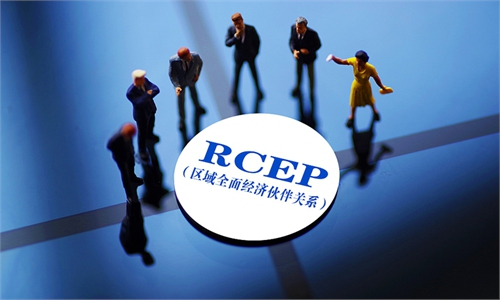Tariffs and trade war to be ‘definitely’ covered in China-US high-level dialogue
Trade to be ‘definitely’ covered in US-China dialogue in Alaska

China-US trade
Trade issues, particularly the lingering tariffs war, will "definitely" be on the agenda for the first China-US high-level official dialogue since Joe Biden took over the White House - but any concrete outcome is unlikely as the focus will likely be on political and security issues, Chinese trade experts said on Sunday.
Also dimming the prospect for any meaningful discussions on the bruising trade war waged by Biden's predecessor Donald Trump were signals from Washington that US punitive duties and the phase one trade agreement would not be a "major topic" for the dialogue later this week.
Yang Jiechi, director of the Office of the Foreign Affairs Commission of the Communist Part of China's Central Committee, and Chinese State Councilor and Foreign Minister Wang Yi are scheduled to meet with US Secretary of State Antony Blinken and National Security Advisor Jake Sullivan in Anchorage, Alaska on Thursday and Friday.
Asked whether tariffs and US export controls on China would be part of the talks, Sullivan said on Friday that "I don't expect that, for example, the phase one trade deal is going to be a major topic of conversation next week." He came out with a list of US grievances against China, including China's internal policies in Hong Kong and Xinjiang.
"I think they have their wish list and we have our own agenda. The dialogue between China and the US is not only a political dialogue but will also include economic relations," Li Yong, deputy chairman of the Expert Committee of the China Association of International Trade, told the Global Times on Sunday, adding that the trade war, which is now more than three years old, has shown that tariffs only hurt the US economy and workers.
"The US needs to offer an explanation [over its position]."
Since President Biden, who previously blasted Trump's trade war approach, took office, his administration has signaled that it would continue to collect tariffs, while conducting a review and consultations with its allies. However, calls for Biden to drop the tariffs have been growing within the US, with some studies suggesting that the tariffs have caused a loss of 245,000 US jobs.
A study from the US-China Business Council predicted that a significant decoupling between China and the US could lead to a real GDP dent of $1.6 trillion for the US over the next five years and jobs losses of 732,000 in 2022.
"Biden has not ended the Trump era unilateralism and protectionism, and has even escalated it in some areas, including a number of export controls targeting Huawei and other Chinese high-tech companies," Li said, noting that allowing politics to distort economics could be "very dangerous."
Some Chinese trade experts said that the topics might be raised during the high-level dialogue, but concrete moves are unlikely, given that the focus will be on security and political matters.
"[Tariffs] will definitely be mentioned. It's impossible to avoid that," Chen Fengying, a research fellow at the China Institutes of Contemporary International Relations, told the Global Times on Sunday. "However, this is more about the general diplomatic relationship," she said, noting that senior trade officials from both sides were not attending.
On the trade front, the Chinese side will likely reiterate China's long-standing position that tariffs and other economic sanctions must be rolled back for both sides to improve ties, analysts said.
During a forum in Beijing on February 22, Wang said that economic and trade cooperation is an important part of the bilateral relationship, and tariffs and other sanctioning measures should be scrapped to create conditions for cooperation.
"We hope that the US side will adjust its policies as soon as possible, among others, remove unreasonable tariffs imposed on Chinese goods, lift its unilateral sanctions on Chinese companies and research and educational institutes, and abandon irrational suppression of China's technological progress, so as to create the necessary conditions for China-US cooperation," the foreign minister said, according to the Xinhua News Agency.



